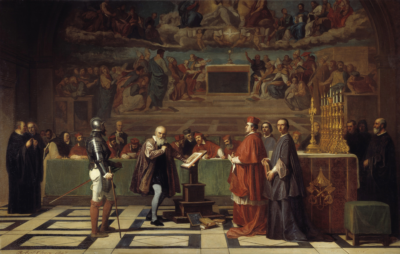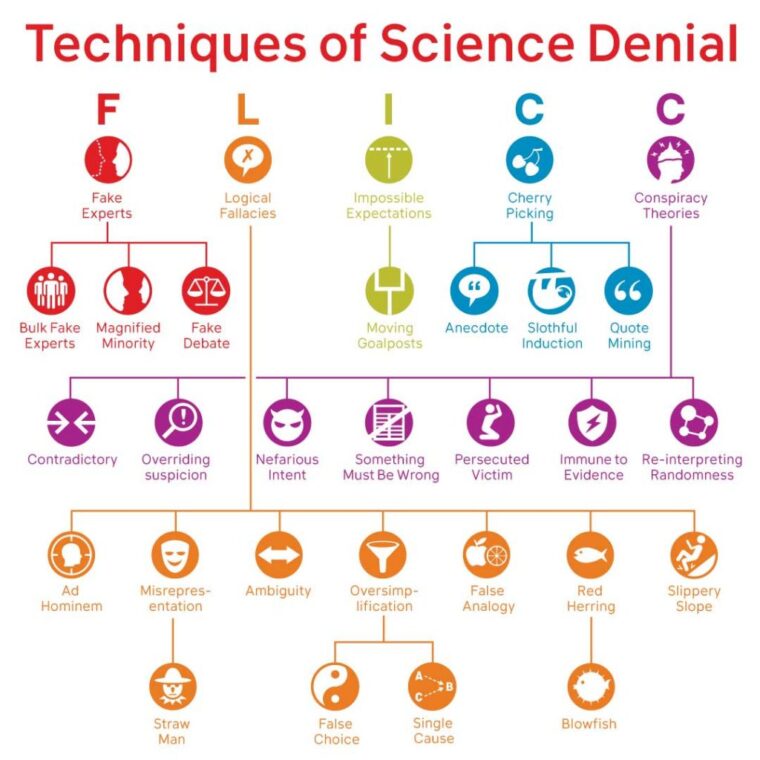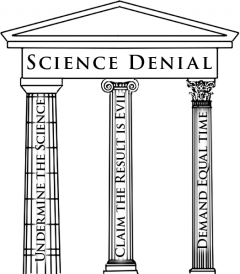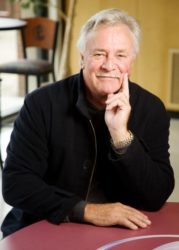Michael A. Peters ![]() and Tina Besley
and Tina Besley ![]()
Faculty of Education, Beijing Normal University, P.R. China
Abstract
With the increasing use of social media by many people, and where many actually get their news from social media rather than traditional media sources (newspapers, TV, and journals) amidst the Covid-19 pandemic, there is a huge increase in the number and influence of conspiracy theories world-wide. This has meant that those who believe and follow such theories are more likely to reject official health advice and government instructions, amid science denialism, anti-scientism and a distrust of experts, as well as politicians. Despite some efforts to remove misleading information, it remains easy to find sites promoting conspiracies such as ‘5G coronavirus’ as well as hate speech. But such theories are not limited to coronavirus, and in fact many others, such as QAnon, are actively or tacitly promoted by President Trump. Noting that neither conspiracies, nor science denialism are new, we start by briefly looking at the transition from the Dark Ages to Enlightenment and the Age of Reason, noting the case of Galileo. Then it was very dangerous to hold well-reasoned scientific views that did not fit with the prevailing views of the time; a combination of philosophical, and theological Church beliefs, which were based on Aristotelian geocentric views of the earth as the centre of the universe, and a geostatic literal biblical interpretation. We look at present day scientific skepticism and how to debunk some of the most widely held scientific myths. The need to educate and advocate for education that includes critical thinking, critical literacy, and critical media literacy is more important than ever or we risk having a large proportion of the population believing only what they read on social media and becoming dangerously anti-science and not prepared to even consider data or evidence and so be at the mercy of rampant and dangerous conspiracy theories — maybe risking a ‘New Dark Ages’!
Key words
conspiracy theories, social media, science denialism, anti-scientism, Enlightenment, Dark Ages, Galileo
My fate is to live among varied and confusing storms. But for you perhaps, if as I hope and wish you will live long after me, there will follow a better age. This sleep of forgetfulness will not last forever. When the darkness has been dispersed, our descendants can come again in the former pure radiance.
–Petrarch, Africa, IX, 451-7
Francesco Petrarch, the Tuscan scholar, was an early humanist scholar and poet credited with igniting the Italian Renaissance in the 14th century who used the metaphor of lightness and darkness to refer to the periodization of the Middle Ages, contrasting the ‘Dark Ages’ with the ‘light’ of classical antiquity. ‘The Dark Ages’ were pictured as a cultural decline following the cultural achievements of the Romans and the Greeks. It is seldom used by historians today because of its pejorative judgement, but after Petrarch and throughout the ‘Age of Enlightenment’ the term was used to describe the early Middle Ages as a time of intellectual decline and obscurity based on medieval ignorance, superstition and religious belief. Petrarch’s metaphors and historiography were embraced to highlight the ‘Age of Reason’ which saw the culmination of the Scientific Revolution and the beginning of the Enlightenment inspired by the use of public reason and the evidence of the senses. This was also the era that lead to notions of liberty, progress, and constitutional government based on the separation of church and state. The idea of a new age—a new Enlightenment—has also served as a source of inspiration for science, education and philosophy and is sometimes depicted as a more just and democratic society (Bivona, 2017) or a reshaping of capitalism and the global order (Teece, 2018). Steven Pinker (2018), the Harvard psychologist makes the case for history as the ‘recovery’ of the programs set in motion by the 18th century intellectual movement.
In Enlightenment Now, Steven Pinker (2018) follows up on his The Better Angels of Our Nature (2011) that described modern improvements due to liberal humanism and scientific rationality of the Enlightenment. In his 2018 book he maintains that life just keeps getting better. Yet at the same time he holds that reason, science and humanism – as the central values of the Enlightenment – are under threat from religious fundamentalism, political correctness and postmodernism. A number of commentators have suggested that Pinker misattributed the attack on reason by the Left and seriously misunderstood both Nietzsche and postmodernism. John Gray (2019), for instance, called the book ‘embarrassing’ and ‘a feeble sermon for rattled liberals’. Ian Goldin (2018) talked about the limitations of Pinker’s analysis suggesting it was ‘an oversimplified model for our complex era.’
The historiography of the Enlightenment reveals that it cannot be reduced to a single narrative and that early views of the Enlightenment became the basis for German Orientalism and the origins of modern race theory, harbouring deep historical prejudices against China. The very thought that the world is no longer defined simply by a single set of Enlightenment values or legacy in an increasing diverse ethnic world, sometimes called ‘the Asian century,’ now seems an obvious truth (Carhart, 2019; Osterhammel, 2018). While the history of the Enlightenment ideals of freedom, equality, science, autonomy, and rationality which rightly became a cornerstone of the West’s favourite self-image, one of the keys to unlocking the Enlightenment is to investigate its conceptual resources to unmask social origins and histories in terms of how they were lived and experienced. Much historiography has limited itself naturally to the interpretation of official or published documents but history can tell multiple stories from different points of view—of women, of children, of those non-imperial powers other than France, Britain and Germany, and of non-Europeans: ‘Such historiography reveals also not only multiple and sometimes conflicting accounts of the Enlightenment but also its dark side. Famously, Horkheimer and Adorno (1947) referred to the Dialectic of Enlightenment’ (Peters, 2019, p. 889).
Enlightenment historiography reveals not only the ‘dark’ side but also questions a philosophy of history that sees the Enlightenment as a smooth and progressive transition to modernity, picturing American civilization as the historical apex. Certainly, the success of natural science created a new picture of the world very different from that of the 17th century, but at the same time, as Sebastian Conrad (2012) notes:
The standard interpretations, however, have tended to assume, and to perpetuate, a Eurocentric mythology. They have helped entrench a view of global interactions as having essentially been energized by Europe alone (p. 999).
Modern history is not a steady and progressive linear movement of sequential causal processes from ignorance to enlightenment, although this easy assumption is often taken for granted. There are many early examples of teleological views of history and theories that spring from a form of social evolutionism typical in the 19th century. Thinkers like Michel Foucault and Hayden White developed approaches which emphasize that history is only accessible to us in textual form in the form of narrative. With any historical discourse we must ask questions about the text—its authors, its construction, its sources, its archive and its perspective. Most importantly, historical truth depends upon recognising the network of power relations. On this narrative model it is useful to consider ‘disruptions’ and periods when people think the world is going backwards. We would argue that the in the current era that this is characterized by apocalyptic ‘end time’ narratives (Peters, 2011), and by the end of liberal internationalism often taken as signifying ‘the decline of the West’ and ‘the rise of the East.’ In these conditions many scholars have argued we face the prospect of a ‘new ignorance’ based on the crowd mentality of social media that feeds science denial and anti-reason conspiracies.
In the first decades of the 21st century a new mood of pessimism, negativity, fear and suspicion has cast aspersions on science, government and education. The universality of values that emanated from a self-confident Enlightenment and the geopolitical dominance of a European worldview have begun to wane giving way first to American, then Asian global ascendancy. This has come at a time when new forms of techno-science based on quantum science and complexity (such as AI, Deep Learning, Nanotechnology, Genomics) have superseded the old sciences based on the mechanistic paradigm of classical physics. At the same time, the new digital technologies first thought to be associated with breakthroughs for democracy, science and rationality have not lived up to their promises for greater participation, self-learning and public enlightenment. As the European Forum (2015) express it in their ‘Introduction to the “New Enlightenment”’:
At first, digitalisation and the internet were interpreted as a departure into a new epoch of the Enlightenment. Many expressed exalted hopes that participation and connection in the digital arena would bring about the final breakthrough for democracy and rationality. Access to knowledge and information alone would protect humanity from radicalisation and ideology: so ran the assumption. Whoever casts a glance over the global flashpoints of today will realise that a hyper-connected, global communication platform does not automatically lead to more peace and cooperation. Additionally, algorithm-driven, self-learning structures are developing their own dynamic which for many people is cause for some concern.[1]
Digitalisation and the internet has not led to the new Enlightenment. Rather than tools for conviviality or coordination, social media sites have increasingly become tools for political manipulation, control and the spread of conspiracies that feed anti-science and anti-government narratives, as well as hate speech (Besley & Peters, 2019a). Social media followings like Facebook are comprised of ‘likes’ but not the world of ideas. Similarly, social media is based more on social narcissism, sharing images and ‘selfies’ rather than theories. It is not a medium for discussion or for fact-checking. As a result attitudes are formed by celebrities and ‘influencers’.
Anti-science or science denialism is a contemporary phenomenon yet is also part of that ancient form of denialism as a form of pseudo-science including different kinds of geocentrism, the Great Flood, and the creationism that survived from pre-Copernicus myths, in particular, the early Christian tradition and theology when human beings in the Great Chain of Being were thought to occupy the center of the universe. Creationism is consistent with the idea that the Earth is less than 10,000 years old. James Ussher (1581-1656), Archbishop of Armagh and Primate of the Church of Ireland, determined the date of the Creation in The Annals of the Old Testament, deduced from the first origins of the world (1650) to have been 22 October 4004 BC.
It’s a complete denial of geology as a field and runs against beliefs in scientific history and all the sciences establishing prehistory. There is also a psychological state that emphasizes an enduring structure of belief that is untrue but not irrational as many philosophers claim. In most cases denialism is a remnant of a belief structure that existed before the influence of empirical science. It had theological support and was buttressed by religio-cultural practices that drew on the astronomic beliefs and myths of the geocentric universe which was a characteristic of most ancient civilizations. The Ptolemic Universe is known after Ptolemy, a Greek philosopher and astronomer, who developed geocentric models and astrological tables. It was the prevailing consensus supported by observations of other star systems and the positions of the planets. Ptolemy’s cosmology indicated that the Earth is at the centre of the cosmos and does not move. The geocentric model of the universe with Earth as its centre was the dominant model until Nicolai Copernicus’ (1543) De revolutionibus orbium coelestium – On the Revolutions of the Heavenly Spheres, which was reportedly based on Plutarch’s and Cicero’s ideas and the Syrian astronomer Mu’ayyad al-Din al-‘Urdi amongst others of the Maragha group that criticised the Ptolemaic system and developed the Urdi Lemma non-Ptolemaic model of planetary motion in the 13th century. The scientific revolution of the 17th century began to detail the heliocentric solar system through the observations and empirical science of Tycho Brahe and Galileo established the Copernican system, which was nevertheless banned as heretical by the Roman Catholic Church in 1616. Galileo was famously tried and prosecuted by the Roman Catholic Church Inquisition in 1633, for his heliocentric astrological model, and was sentenced to indefinite imprisonment and was kept under house arrest until he died in 1642. It was clearly very dangerous to hold well reasoned scientific views that did not fit with the prevailing views of the time; a combination of philosophical, and theological Church beliefs, which were based on Aristotelian geocentric views of the earth as the centre of the universe, and a geostatic literal biblical interpretation.
Moreover following the Inquisition decision, the Congregation of the Index, all Copernican books were officially banned in what was called “the false Pythagorean doctrine, altogether contrary to Holy Scripture” (Heilbron, 2012, p. 218). It was only in 1835 that the Index dropped the ban on Copernicus’ and Galileo’s books, and not until 1992, some 350 years later that the Catholic Church under Pope John Paul II admitted that Galileo was right.[2]

Galileo before the Holy Office (Robert-Fleury, 1847).
As the infamous Copernican denial and the Galileo case illustrates, science denialism defined as the ‘rejection of empirically supported propositions despite scientific consensus and the effort to create the appearance of debate when there is none, is not a new phenomenon’.[3]. David Levine (2018) notes science denialism in the 21st century is ‘rampant’, but provides the 1850 example of Hungarian obstetrician Ignaz Semmelweis who argued that washing hands could lower hospital infections. He was laughed at even though it is now standard hospital practice, yet hand-washing is still only 30 percent in the pre-COVID-19 era.
Science denialism is a psychology of belief that emphasizes that people have a choice to believe a denial of reality that is at odds with scientific evidence. While some instances may be relatively harmless, many are downright dangerous, especially when bogus remedies are suggested as cures for serious health issues. e.g.
Thambo Mbeki, South Africa’s president between 1999 and 2008, became infamous for his denial of the link between HIV and AIDS. Despite overwhelming scientific consensus that HIV causes AIDS, he suggested instead that the causes of AIDS are poverty-related and due to poor nourishment and overall ill-health. He instituted policies that denied antiretroviral drugs to AIDS patients. Instead, his appointed health minister, Manto Tshabalala-Msimang, recommended garlic, beetroot, and lemon juice as treatments for AIDS. In a country with the highest HIV prevalence worldwide in absolute numbers, these policies had disastrous consequences: they are estimated to have led to more than 330,000 preventable deaths.[4]
Such denialism is often described as irrational in that it rejects established scientific fact while using selected data as evidence, suggesting radical alternative narratives. Conspiracies are often based on the idea that current science is a plot designed to cover up the real world, often perpetrated by a small group of agents who now use social media to manipulate and control the public for political or financial gain. Such conspiracy thinking and science denial is now common not only with contemporary flat-earthers but also, for example, with Holocaust denial, AIDS denial, denial of evolution, climate change denial, anti-vaxxers, 5G mobile network, and most recently COVID-19 denial. BBC recently reported that a study published in the American Journal of Tropical Medicine and Hygiene estimates that in the first 3 months of 2020, about 5,800 people were admitted to hospital as a result of false information on social media and globally at least 800 people may have died because of drinking methanol or alcohol-based cleaning products, wrongly believed to be cures for the virus.[5] In these examples, the prevailing scientific consensus is denied often through a form of heightened suspicion of any authority that both questions the nature of science and exploits emotions to produce a kind of collective paranoia based on feelings of being threatened. Increasingly on social media politicians and others including professional conspirators make exaggerated and false claims for political or social purposes.
In 2012 Donald Trump tweeted “The concept of global warming was created by and for the Chinese in order to make U.S. manufacturing non-competitive”[6]. As Schmid and Betsch (2019) put it: ‘The claim has been retweeted nearly 100 million times and generated thousands of responses. The vast majority of these responses were emotional, whereas fact-based rebuttals among those who responded were a slim minority.’ They suggest that ‘not responding to denialism does more harm than good.’ The authors found that ‘the negative effect of science denial on audiences was greater when there was no science advocate to rebut the claims.’
John Cook (2020), is a founder of the Skeptical Science website, which takes a close look at scientific skepticism and how to debunk some of the most widely held beliefs in scientific myths. Much of his work began by focussing on climate change denial and global warming skeptics, explaining the peer reviewed literature. He points out that
Often, the reason for disbelieving in man-made global warming seem to be political rather than scientific. Eg – “it’s all a liberal plot to spread socialism and destroy capitalism”. As one person put it, “the cheerleaders for doing something about global warming seem to be largely the cheerleaders for many causes of which I disapprove”. However, what is causing global warming is a purely scientific question. Skeptical Science removes the politics from the debate by concentrating solely on the science.
Cook presents the following techniques of science denial, using Mark Hoofnagle’s work where his science blog Denialism in 2007, noted that
denialists across a range of topics such as climate change, evolution, & HIV/AIDS all employed the same rhetorical tactics to sow confusion. The five general tactics were conspiracy, selectivity (cherry-picking), fake experts, impossible expectations (also known as moving goalposts), and general fallacies of logic. [bold in original]
Most of the up-to-date information and discussion on science denial and conspiracies is not to be found in traditional texts and academic articles, but rather in multi-media locations – websites, videos, and podcasts. A March 2020 CleanTech Talk podcast discussion between Michael Barnard and John Cook, ‘Science Denial, & Communication To Solve That’ starts discussing how
John’s recent survey about people’s climate beliefs, in which John and his co-researcher, Stephen Lewandowski, discovered that people who denied climate science were more likely to believe in conspiracy theories. This riled the general public, and the popularity of the study pulled John into the world of social science and psychology.
Cook responds to Pascal Diethelm and Martin McKee’s (2009) article ‘Denialism: what is it and how should scientists respond?’ to further flesh out Hoofnagle’s five techniques of science denial in the FLICC typology below that is useful not only to scientists but also to teachers: The FLICC typology – Source: John Cook (2020)

In the COVID-19 environment there has been a worrying upsurge in science denial and conspiracies, as well as hate speech and hate crimes (Peters 2020a, b). There are some strong connections between this upsurge, fear, and social media which coordinates networks filled with conspiracy, irrationality and fear. Perhaps more worrying still is the manipulation of fact using data. In the Carl Bergstrom and Jevin D. West (2020) book Calling Bullshit: The Art of Scepticism in a Data-Driven World, provoked by Brexit and the Trump election, describes the ways in which ‘people are using data to bullshit’.[7] Carl Bergstrom responding to a question in an interview says:
I am generally optimistic about the young generation and the world they want to create. But I think the media environment we have created makes it much harder for them to do that. We could look at the BBC or the New York Times in the belief that they at least bore some relation to reality. The students in my class get most of their news from social media, and are more vulnerable to this tyranny of numbers.
What is particularly worrying and what the general public are not often aware of is that certain very well-funded, lobby groups, closely connected with particular the political status quo are actively promoting science denialism. We pointed out how following similar techniques that the tobacco lobby had used to continue pushing tobacco products despite the science showing its dangers, now the oil and gas industry which has links to major fund managers in our article, ‘Life and death in the Anthropocene: Educating for survival amid climate and ecosystem changes and potential civilisation collapse’ (Besley & Peters, 2019b). The process is similar to the FLICC model, but is disarmingly simple using the 3 Pillars model below which “views denial from the more strategic perspective of how can we create denial?” [8]

3 Pillars model
- Use disinformation to show people it’s “bad science”
- Claim the bad science is driven by radical ideology and leads to undesirable social consequences (even though conservative climate change solutions exist)
- Demand equal time in the media.
(Rosenau, 2012)
In New Zealand, where by June – August 2020, COVID-19 was well under control, there are some examples of this type of irrationality and science denial making it into politics for the upcoming national elections in September. As Charlie Mitchell (2020) comments on a video by Billy Te Kahika, the leader of the newly established NZ Public Party (NZPP) where:
Te Kahika lays out a theory. It interweaves the Hegelian dialectic, the origins of communism and fascism, satanism, geoengineering, and the ongoing Covid-19 pandemic into a sinister global plot to control the population.
Much of this research veered towards fringe ideas, circulated on Facebook and YouTube. His political posts became regular, and increasingly incorporated information from the emerging ecosystem of conspiracy theories related to the pandemic, typically centring on unsubstantiated or outright false claims.
It culminated in his live broadcast, which merged these ideas into a unified theory: That the pandemic had been planned, and the New Zealand Government was at the forefront of a global push to enslave the population.
At the time of writing (August 15) it is too early to tell whether NZPP (now merged with Advance NZ, a new party registered by the disgraced former National MP, Jamie Lee Ross) will win votes or the status of a minor party in the NZ Parliament, but his rallies that take the form of a religious meeting are well attended with hundreds of followers including many Māori.
This form of ‘bullshit’ is doubly damaging to the public sphere when it moves from a form of untruth and fear-based irrationality in social media, to utilizing the social media memes as a political platform. Now more than any time in recent history we have a new responsibility for truth in the public domain and for a form of public education that can take on the conspirators, the manipulators, and the rumour-mongers, as well as analyzing social media. We need much more widespread, in-depth science and environmental education and public information that can address these topics. We need to educate so people understand more about the differences between information, data, and knowledge where justified true belief (JTB) knowledge requires that all three JTB conditions are met; what constitutes evidence; reliability, validity, and probability in the use of statistics. We need to educate and advocate for education that includes critical thinking, critical literacy, and critical media literacy more than ever or we risk having a large proportion of the population believing only what they read on social media and becoming dangerously anti-science and not prepared to even consider data or evidence and so be at the mercy of rampant and dangerous conspiracy theories — maybe even a ‘New Dark Ages’!
A Note about ACCESS from former editor, Michael A. Peters
I have been associated with Access as an editor, author and reviewer since its beginnings in 1982 where I published my first academic article ‘A Critique of the Knowledge as Production Thesis’ in 1984, an Althusserian discussion of the work of Kevin Harris and Michael Matthews. I was the editor during the 1990s and cut my editorial teeth so to speak on Access and continued to write for it and support it thereafter when Elizabeth Grierson took over as editor. The journal complemented Educational Philosophy and Theory of which I became editor in 1992 and it contains many articles in the field of philosophy of education including some of the important contributions made by Marxist philosophers of education and much else besides. I am absolutely delighted that Nina Hood, Marek Tesar and Andrew Madjar are now taking over as editors of Access: Contemporary Issues in Education as a PESA journal, starting with Volume 40 as Open Access in the new format of PESA Agora and I am looking forward to the forthcoming issues.
References
Bergstrom, C., & West, J. D. (2020). Calling Bullshit: The Art of Scepticism in a Data-Driven World. Allen Lane.
Besley, T., & Peters, M. A. (2019a). Terrorism, trauma, tolerance: Bearing witness to white supremacist attack on Muslims in Christchurch, New Zealand. Educational Philosophy and Theory, 52(2), 109-119. https://doi.org/10.1080/00131857.2019.1602891
Besley, T., & Peters, M. A. (2019b). Life and death in the Anthropocene: Educating for survival amid climate and ecosystem changes and potential civilisation collapse. Educational Philosophy and Theory. https://doi.org/10.1080/00131857.2019.1684804
Bivona, R. (2017). The New Enlightenment: A Twenty First Century Peaceful American Revolution. New Enlightenment Citizen’s Union.
Carhart, M. C. (2019). Leibniz Discovers Asia: Social Networking in the Republic of Letters. Johns Hopkins University Press.
Cook, J. (2020). A history of FLICC: the 5 techniques of science denial. https://skepticalscience.com/history-FLICC-5-techniques-science-denial.html
Conrad, S. (2012). Enlightenment in Global History: A Historiographical Critique. The American Historical Review, 117(4), 999–1027. https://doi.org/10.1093/ahr/117.4.999
Diethelm, P., & McKee, M. (2009). Denialism: what is it and how should scientists respond? European Journal of Public Health, 19(1), 2–4. https://doi.org/10.1093/eurpub/ckn139
European Forum, the (2015). Introduction to the “New Enlightenment”. https://www.alpbach.org/en/forum2016/programme-2016/new-enlightenment-an-introduction-by-the-presidents-of-the-european-forum-alpbach/
Goldin, I. (2018). The Limitations of Steven Pinker’s optimism. Nature. https://www.nature.com/articles
/d41586-018-02148-1
Gray, J. (2018). Unenlightened thinking: Steven Pinker’s embarrassing new book is a feeble sermon for rattled liberals. New Stateman. https://www.newstatesman.com/culture/books/2018/02/unenlightened-thinking-steven-pinker-s-embarrassing-new-book-feeble-sermon
Heilbron, J. L. (2012). Galileo. Oxford University Press.
Levine, D. L. (2018). Science Denialism in the 21st Century. Scientific American. https://blogs.scientificamerican.com/observations/science-denialism-in-the-21st-century/
Mitchell, C. (2020, August 1) The conspiracists’ election: How the farthest fringes of politics are making a play for the centre. Stuff. https://www.stuff.co.nz/national/politics/300070891/the-conspiracists-election-how-the-farthest-fringes-of-politics-are-making-a-play-for-the-centre
Orrico, J. (2016). Transparent skull model [Photograph]. Unsplash. https://unsplash.com/photos/rmWtVQN5RzU
Osterhammel, J. (2018). Unfabling the East: The Enlightenment’s Encounter with Asia (R. Savage, Trans.). Princeton University Press.
Peters, M. A. (2011) The Last Book of Postmodernism: Apocalyptic Thinking, Philosophy and Education in the Twenty-First Century. Peter Lang Publishers.
Peters, M. A. (2019). The enlightenment and its critics. Educational Philosophy and Theory, 51(9), 886-894. https://doi.org/10.1080/00131857.2018.1537832
Pinker, S. (2011). The Better Angels of our Nature. New York. Viking.
Pinker, Steven S. (2018). Enlightenment Now: The Case for Reason, Science, Humanism, and Progress. Viking.
Robert-Fleury, J.-N. (1847). Galileo before the Holy Office [Painting]. Wikimedia Commons. https://commons.wikimedia.org/wiki/File:Galileo_before_the_Holy_Office_-_Joseph-Nicolas_Robert-Fleury,_1847.png
Rosenau, J. (2012). Pillars of denial [Image]. NCSE. https://ncse.ngo/files/images/pillars_0.png
Schmid, P., & Betsch, C. (2019). Effective strategies for rebutting science denialism in public discussions. Nat Hum Behav 3, 931–939. https://doi.org/10.1038/s41562-019-0632-4
Teece, D. J. (2018). The New Enlightenment: Reshaping Capitalism and the Global Order in a Neo-Mercantilist World, https://www.davidjteece.com/in-the-news/new-enlightenment
Notes
[1] https://www.alpbach.org/en/forum2016/programme-2016/new-enlightenment-an-introduction-by-the-presidents-of-the-european-forum-alpbach/
[2] https://www.newscientist.com/article/mg13618460-600-vatican-admits-galileo-was-right/
[3] Debunking science denialism. Nat Hum Behav, 3, 887. 2019 https://doi.org/10.1038/s41562-019-0746-8
[4] Debunking science denialism. Nat Hum Behav, 3, 887. 2019 https://doi.org/10.1038/s41562-019-0746-8
[5] https://www.bbc.com/news/world-53755067
[6] https://twitter.com/realdonaldtrump/status/265895292191248385?
[7] See the interview with Carole Cadwalladr in The Guardian, https://www.theguardian.com/science/2020/aug/01/carl-bergstrom-people-are-using-data-to-bullshit?CMP=Share_iOSApp_Other
[8] https://skepticalscience.com/agw-denial-explained-2.html
Michael A. Peters & Tina Besley
Faculty of Education, Beijing Normal University, P.R. China
ORCID
Michael A. Peters https://orcid.org/0000-0002-1482-2975
Tina Besley https://orcid.org/0000-0002-4377-1257





